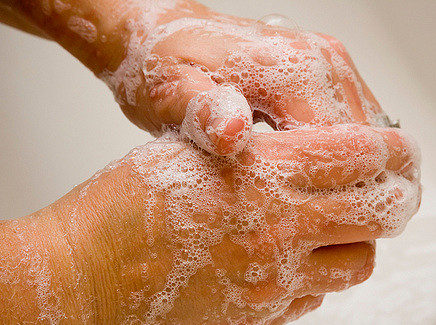Archive for March 2020 | Monthly archive page
After years of using bar soap and deodorant without even ONCE looking at the ingredients, my partner came across some disturbing information. She informed me that there were a large amount of harmful chemicals present in the bar soaps and deodorants that we were using at the time. My response, of course, was “so what?”. I figured as long as I wasn’t eating them, (by the way, Peaceful Living™ deodorants are so organic that they are actually safe to eat), it didn’t matter what chemicals were in them!
That assumption was what kept me from ever looking into what ingredients were in my personal care products.
In the last few years, my partner and I have been doing research to try and find the truth with regards to this subject matter. While we have not found anything 100 percent conclusive, we have found enough evidence to make the personal decision to stop using chemical filled products. From a logical perspective, we find no point in taking a risk with our health while the jury is still out!
Below you will find some excerpts of what we have found, that are intended to help make your research easier to conduct (we encourage you to do your own research!)
According to Jane Houlihan, the director of cosmetics safety research for the EWG, or Environmental Working Group, (which is a nonprofit research and advocacy organization), research has shown that many conventional personal-care-products contain chemicals of concern that can disrupt your hormones, cause allergies, or can damage your skin. (Source)
Many people tend to ignore the fact that much of what is applied to your skin, is often absorbed into your blood stream. Think about it ; if it were not possible, than how would things like nicotine patches or birth control patches be effective? Both of these products make use of the absorptive quality that the skin possesses, and successfully accomplish tasks such as weening people off of cigarettes and preventing pregnancy!
Furthermore, according to WebMD, Premarket safety testing is not something that is usually done for personal care products.
In a 2008 study, high levels of phthalates were found in the urine of babies that were recently soaped or slathered with baby shampoo, powder, or lotion. Although that study was back in 2008, still to this day, manufacturers aren’t required to list the specific chemicals that make up fragrances, and fragrances often contain phthalates, which are used to make smells last longer. For this reason, WebMD recommends looking for products that say “No Phthalates” or “Phthalate Free”. (Source)
One study published on Pubmed, a very reputable free search engine which accesses primarily the MEDLINE database of references and abstracts on life sciences and biomedical topics, states that some chlorinated compounds such as Pthalates and Parabens, are fat soluble and can be absorbed through our skin. It goes on to mention that Pthalates have been associated with several serious health problems, including infertility, testicular dysgenesis, obesity, asthma, and allergies. The study, however, does not specify if these health issues are from the use of personal care products, and the FDA has not found evidence that the amount of Phthalates present in products on the market is unsafe. Still, just because there is not enough evidence yet, does not mean that we should continue to use these products until there is. (Source)
As a matter of fact, the notion that they have not found evidence proving they are unhealthy is not too comforting for me, considering that (according to a Harvard.edu publication), there is minimal, if any, safety testing on most of these products. And even to this day, the FDA has little power to regulate the ingredients in personal care products, under a law that has not been updated since 1938! This law provides companies with “loopholes” such as being able to label their products as organic, natural, or hospital-approved based solely on their own interpretation of the terms. The only way that you can be absolutely sure of what is in a product, is if it is Certified Organic by the USDA. Otherwise, companies are free to “hide problematic ingredients in proprietary formulations by listing them as “fragrance” on the label.” (Source)
Other than Pthalates and Parabens, here is a list of chemicals commonly found in shampoos, deodorants, moisturizers, soaps, or makeup that should be given some attention : Formaldehyde, Diethanolamine, Triclosan, Propylene Glycol, Sodium Lauryl Sulfate, Synthetic Coloring, Synthetic Fragrance, Aluminum, and Lead. A great article published by the Huffington Post which goes into greater detail about the potential negative effects of these chemicals can be read here : (Source)
We hope that you will look further into the information presented on our website. Regardless what conclusion you draw, there is one thing that is an absolute fact; Your skin is your largest organ, and you should be careful with what you put on it (especially on a daily basis).
Sources : 1. https://www.washingtonpost.com/national/health-science/soaps-makeup-and-other-items-contain-deadly-ingredients-say-consumer-advocates/2012/01/24/gIQAeJ56cQ_story.html 2. http://www.webmd.com/children/environmental-exposure-head2toe/personal-care-products?page=1 3. http://www.ncbi.nlm.nih.gov/pubmed/21155623 4. https://www.hsph.harvard.edu/news/features/harmful-chemicals-in-personal-care-products/
5. http://www.huffingtonpost.com/vanessa-cunningham/dangerous-beauty-products_b_4168587.html

